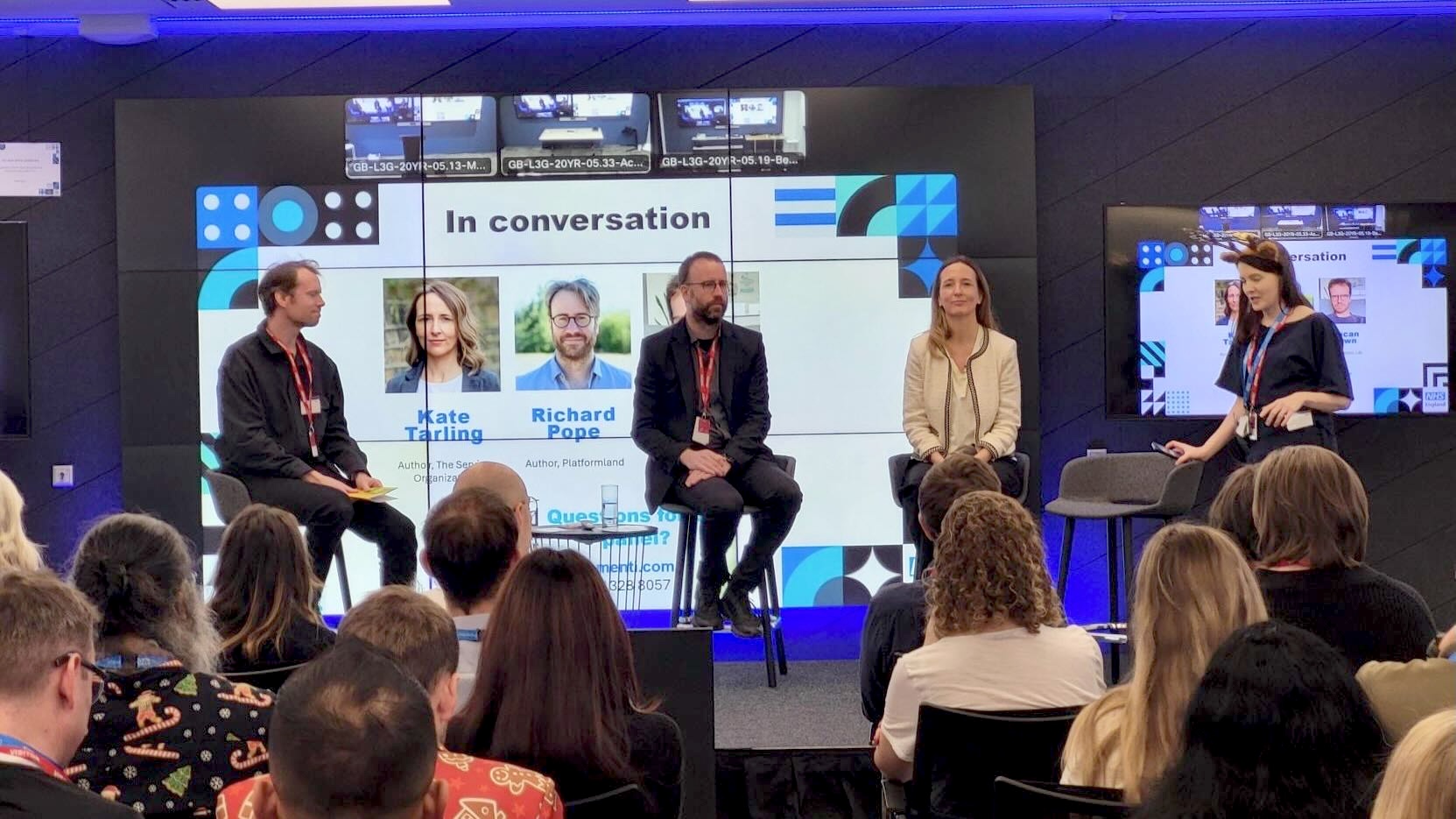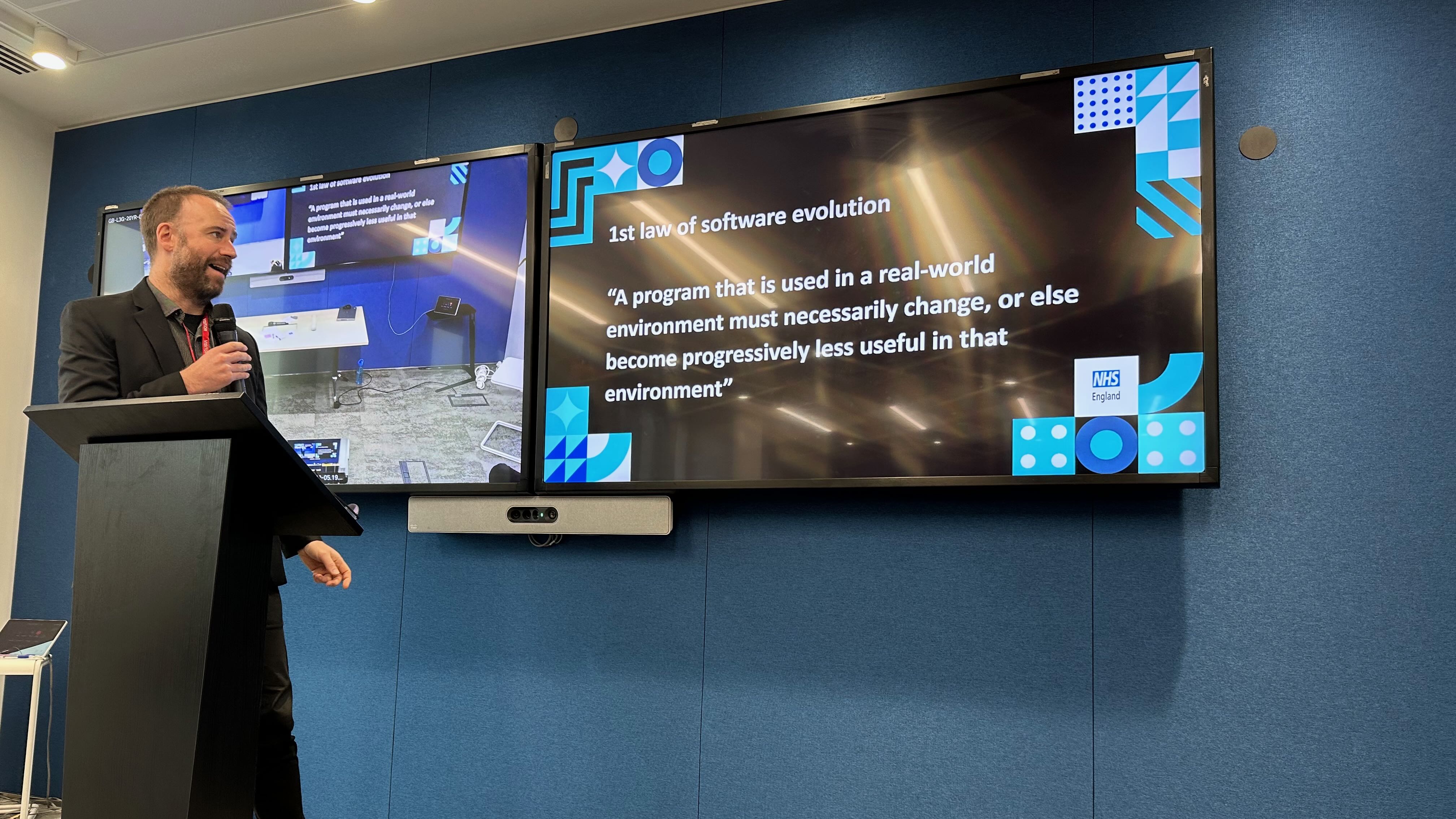Week 31: End of year event

This week we had an end of year event for the whole of Digital Prevention Services to celebrate and reflect upon the work done this year.
With 250 people in attendance, we were split across multiple rooms, with video links between the rooms to enable us all to watch the talks, which worked remarkably smoothly.
I somehow volunteered to be the host of one of the rooms. Aside from just welcoming people in, my main task was to run a morning energiser activity and the end of day quiz. I’m sure some people dread such things, but I think I managed to inject enough energy and enthusiasm into the room for us all to enjoy it. And it helped that both activities were designed with a good balance of work relevance and silliness - kudos to Fred for that!
The day featured talks by Kate Tarling, author of The Service Organisation, and Richard Pope, author of Platformland (see week 19).
Kate discussed how organisations can move to a dynamic operating model, which is organised mainly into user-facing service teams whilst also retaining some cross-cutting common tools, platforms and capabilities.
Richard talked about building next generating public services which focused on minimising the administrative burden on users rather than just replicating existing services in digital form to reduce costs.
They both joined a panel after, hosted by Duncan Brown, and I managed to get in a question about digitisation vs decentralisation.
As well as the organised bits of the day, I also enjoyed the informal chats held in the breaks and over lunch, and it was a great opportunity to catch up with people I’d not seen in a while. There was a definite feeling of momentum and excitement for the year ahead.
The after-party was fun too. 🕺
Test and learn
One recurring conversation topic this week was Pat McFadden’s speech, the key phrase of which was to ‘test and learn’:
In the digital age, you don’t have to work out precisely what you need to build at the start, and then start building it.
You can start with something small and try it out. Test it on people. Fix the problems. Change the design. Test it again. Throw it away and start again cheaply, if it doesn’t work. Tweak it again. And so on, and on, for as long as you provide the service.
Having such a clearly articulated argument for the benefits of agile digital at the top of government is really helpful, and will hopefully help to remove many of the blockers that stand in the way of this.
Dave Rogers at Public Digital has written What is ‘Test and Learn’? to flesh out the phrase some more.

At our event Richard Pope pointed out that the idea has been known about since at least back in 1974, when Meir Lehman formulated his first law of software evolution, which states:
A program that is used in a real-world environment must necessarily change, or else become progressively less useful in that environment.
NHS prototype kit
Talking of change, with the help of others I’ve released another new version of the NHS prototype kit this week, version 5.2.0.
This is a fairly minor set of changes, mostly focusing on maintenance and reorganisation of the code in order to enable easier upgrades in future.
One week left of work for me until the Christmas break.